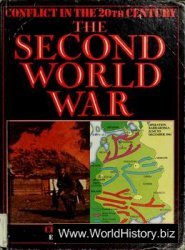In these three countries, other shortages made life shabby and grim.
Civilians in Germany, for example, cut off from the outside world by
blockade, found clothing difficult to come by. The lack of cotton and leather
meant paper garments and wooden shoes. Soap as well became a precious
commodity for Germans. Shortages of coal meant that cities were increasingly
dark at earlier and earlier hours, and private homes were barely heated.
Both Germany and France felt this bite acutely. Most elementary schools
in Berlin had to close during the harsh winter of 1916-1917 because they
could not be heated. Even in Britain, with its vast coal resources, the
shortage of manpower for the mines meant a pinch followed by rationing
at the close of 1917.




 World History
World History









